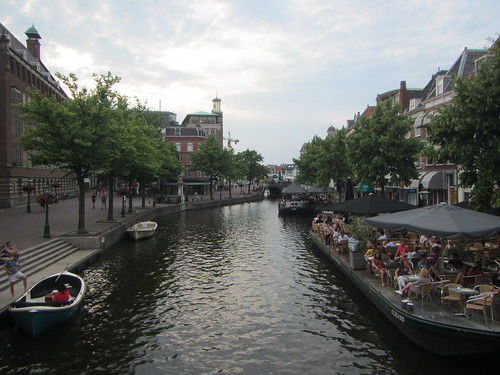Dutch election: Wilders’ far-right party set for gains
Netherlands #Netherlands

AMSTERDAM, Nov 22 (Reuters) – Dutch anti-EU far-right populist Geert Wilders, who has vowed to halt all immigration to the Netherlands, was set for a major victory in parliamentary elections on Wednesday, an exit poll showed.
Beating all predictions, the exit poll put Wilders’ Freedom Party (PVV) at 35 out of 150 seats, 10 seats ahead of the closest rival, former EU Commissioner Frans Timmermans’ Labour/Green Left combination. That margin was far more than expected and appeared to be too great for the outcome to change.
Exit polls are generally reliable with a margin of error of roughly two seats.
At a cafe in The Hague, Wilders fans erupted in cheers, hugged and threw their arms in the air.
In a victory speech, Wilders vowed to bring an end to a “tsunami of asylum and immigration.”
Wilders’ rode a wave of anti-immigration sentiment, blaming a housing shortage on flows of asylum seekers and drawing on widespread concerns about the cost of living and the overburdened healthcare system.
Wilders upset victory came two months after the return to power of the equally anti-EU populist Robert Fico in Slovakia, who pledged to halt military aid to Ukraine and cut immigration.
Last year, Italy formed its most right-wing government since World War Two after the election victory of Giorgia Meloni.
Wilders’ inflammatory views on Islam have prompted death threats and he has lived under heavy police protection for years. He has called the prophet Mohammad a “pedophile”, Islam a “fascist ideology” and “backward religion” and wants to ban mosques and the Quran, the Muslim holy book, in the Netherlands.
Abroad, his anti-Islam comments led to sometimes violent protests in nations with large Muslim populations, including Pakistan, Indonesia and Egypt. In Pakistan, a religious leader issued a fatwa against him.
Islamic and Moroccan organisations expressed concerns about Wilders’ victory. “The distress and fear are enormous,” Habib el Kaddouri, who heads an organisation representing Dutch Moroccans, told Dutch news agency ANP. “We are afraid that he will portray us as second-class citizens.”
[1/8]Dutch far-right politician and leader of the PVV party Geert Wilders appears on a screen as supporters of Dilan Yesilgoz, the leader of VVD, gather for exit poll and early results in the Dutch parliamentary elections, in The Hague, Netherlands, November 22, 2023. REUTERS/Piroschka van de Wouw Acquire Licensing Rights
“It’s gonna be much tougher on immigrants and I’m scared that they’re going to deny people their human rights,” said Labour-Green Left voter Ashlynn Hughes.
A self-proclaimed fan of Hungary’s Victor Orban, Wilders is also explicitly anti-EU, urging the Netherlands to control borders, to significantly reduce its payments to the union and to block the entrance of any new members.
He has also repeatedly said the Netherlands should stop providing arms to Ukraine, saying it needs the weapons to be able to defend itself. However, none of the parties he could potentially form a government with share these ideas.
The party of outgoing Prime Minister Mark Rutte, the conservative VVD, was in third place at 24 seats, the exit poll showed.
Immigration – the issue that triggered the collapse of Rutte’s last cabinet after 13 years in power – has been a key issue in the campaign.
Wilders is expected to try to form a right-wing government with the VVD and the upstart party ‘New Social Contract’, who together would hold a 79-seat majority.
Talks could be difficult as both parties have said they have serious doubts about working with Wilders, because of his outspoken anti-Islam stance, which includes aiming to ban all mosques and Korans from the Netherlands.
“I am confident we can reach an agreement,” Wilders said in his victory speech. “I understand perfectly well we should not take any measures that would be unconstitutional.”
His party had now become too large to ignore, he said, adding he was ready to lead the country.
Wilders is internationally known for his anti-Islam politics and was convicted by a Dutch judge for discrimination after he insulted Moroccans at a campaign rally in 2014.
Rutte will remain in a caretaker role until a new government is installed, likely in the first half of 2024.
Reporting by Johnny Cotton, Toby Sterling, Anthony Deutsch, Bart Meijer, Stephanie van den Berg, Charlotte van Campenhout; Writing by Ingrid Melander; Editing by Toby Chopra, Angus MacSwan and Aurora Ellis
Our Standards: The Thomson Reuters Trust Principles.